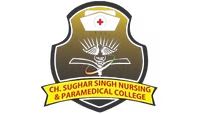Have you given some thought to pursuing a career in the healthcare field? Do you have a passion for lending a hand? A BSc in Nursing seems like a perfect fit. It is not one of the most sought-after degrees by students. This program trains you to be an expert nurse. You learn to provide care to the sick.
More so, you learn about maintaining health and preventing diseases. Let’s explore what a BSc in Nursing has to offer. Both the pros and cons will be presented so that you can determine if this is the right choice for you.
What is BSc Nursing?
BSc Nursing stands for Bachelor of Science in Nursing. It is both an undergraduate degree and a program that lasts 4 years. It equips you to become a registered nurse, and trains you in depth regarding the anatomy of a human being and how different diseases adversely affect people. It has both theoretical components delivered in lectures and practical ones in the form of clinical rotations in hospitals which equip you with skills and exposure.
The curriculum comprises various topics. In the first year, you learn about Anatomy and Physiology, which involves understanding the functions of the human body. You also learn Nutrition as well as Biochemistry. Psychology and Microbiology are also part of the first year. Subsequent years cover Medical-Surgical Nursing, Child Health Nursing, Mental Health Nursing, among others. You will also learn Midwifery and Obstetrical Nursing. There is a strong emphasis on practical skills.
Why Choose BSc Nursing? The Pros
There are many good reasons to choose BSc Nursing. Here are a few:
- The Need for Nurses: In any part of the world, qualified nurses are always in demand as the healthcare industry continues to expand. Looking for a skilled job after completing your education will be much easier. This is a well-documented phenomenon in India and worldwide.
- Career Satisfaction: Nursing helps patients relax and assist people in their recovery process, performing essential tasks such as administering medication, which is invaluable. Every single day, they provide care and comfort. This means a great deal, which further enhances the overall satisfaction.
- Income and Job Benefits: Your earning potential remains very high. Due to the high demand for nurses, there is good job stability and even a steady income. All these factors contribute towards a very attractive overall package.
- Wide Variety of Employment Settings: After completing a BSc Nursing degree, an abundance of career options becomes available. There are opportunities to work in various locations, including hospitals, clinics, and community health centers. Additionally, one may work for the armed forces or in educational institutions.
- Good Salary Potential: Nursing is a well-paying profession. With experience, your earning potential can grow further. More advanced or supervisory nurses tend to earn higher salaries. In India, newly graduated nurses can expect to earn between INR 2 and 4 lakhs per annum. With a few years of work, this can increase to between INR 7 and 9 lakhs annually or even higher.
- Global Opportunities: Indian nurses are highly respected globally. There are nurses in many regions. This increases your chances of finding employment in other countries. The US, the United Kingdom, Canada, and the Gulf countries.
Things to Consider: The Cons
Like any career, nursing has its challenges.
- Extended and Strenuous Hours: Nurses usually have to endure inconvenient shift hours. This can be 12-hour shifts or longer. You may have to work weekends and holidays. This is a demanding role, both physically and mentally.
- High-Stress Environment: Managing a large number of patients can be overwhelming. Dealing with critically sick patients is part of the job. As it does for all healthcare professionals, this takes its emotional toll on you. You need to be strong and resilient.
- Physical Strain: As with every job, nursing has its share of physical challenges. Physically, you may have to assist elderly patients. This can be extremely straining to your body. You may spend a considerable amount of time standing, which can lead to back injuries.
- Exposure to Germs: Nurses have to deal with sick patients, so there is a very high possibility of getting infections. While these pose a certain risk, nurses are informed about safety protocols and are provided with protective equipment.
- Emotional Burnout: Assisting people during the most difficult times can lead to mental fatigue and emotional burnout. You need to remember to manage your mental health.
- Legal Responsibilities: Every action taken must have an accompanying report for the action and each report must have a detailed account of what was done. Meaning, there will be no break and the nurse will work nonstop because every action has a separate set of strict procedures and instructions on how to execute step-by-step.
Eligibility and Admission
To take up the best college for bsc nursing in Etawah, it may be a requirement for you to have completed your 12th standard. It is preferred that you study Physics, Chemistry, and Biology. A baseline of 45-50% marks in the relevant subjects is usually necessary. Most colleges also expect you to pass an entrance test. Some entrance tests include NEET, AIIMS, and state-level tests such as KCET. The lowest age for admission is commonly 17 years old.
Conclusion
A BSc in Nursing opens up opportunities for employment in stable and rewarding positions that suit kind-hearted and hardworking professionals. Most importantly, it enables one to make a significant impact in the field. For students interested in combining nursing with technology, the CSSNP program offers a valuable alternative.
While not purely focused on nursing, CSSNP covers networking, security, and automation, especially important in today’s healthcare technology environment. As the number of electronic records and telemedicine services increases, there is a rapidly growing shortage of nurses who understand technology. This blend of clinical and technical skills offers significant potential in informatics and med tech management, setting you apart as an exceptional industry asset.
